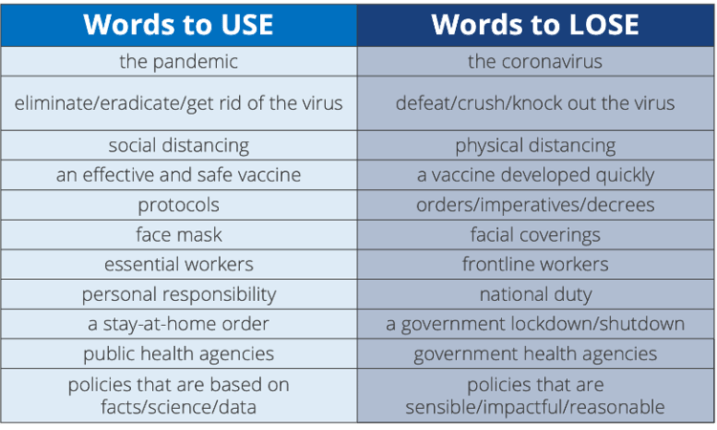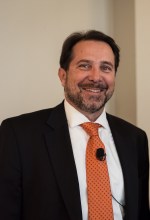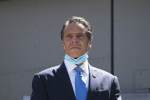In the summer of 1994, while I was working as a writer and editor in the Clinton White House, Frank Luntz was planning with House Minority Whip Newt Gingrich for a historic Republican takeover of Congress in the mid-term elections. Frank was the pollster and one of the main architects of the “Contract with America,” a plain-English document outlining a 10-point plan that helped the Republicans gain control of the House of Representatives for the first time since the 1950s.
We were working on opposite sides of the aisle, but apparently we agreed about President Clinton’s skills as a communicator. When describing him in a 2003 interview, Frank said President Clinton was “the best communicator of the last 50 years. He felt your pain. Now, I’d argue that he caused your pain, but at least he felt it while he was causing it.”
Twenty-six years after that mid-term election, Frank and I were on a Zoom call developing a plan to create language that would help control the spread of COVID-19 and save lives.
It all started on Twitter.
In early November, de Beaumont Foundation President and CEO Brian Castrucci and epidemiologist Beth Linas were tweeting about the need for better language around COVID-19 measures, especially the need to reach conservative Americans who are more likely to oppose public health measures. Brian tweeted that maybe someone like Frank Luntz could help. Frank saw the post and replied enthusiastically. Within a few days, we were on a videoconference to talk about next steps. Frank’s exact words to open the conversation: “Please let me help. I want to make a difference.”
It was clear from the beginning that this was more than a business pitch for Frank. He is passionate about the need for Republican and Democratic leaders to communicate more consistently, powerfully, and honestly about the threat of the pandemic and the simple ways that Americans can help control its spread. For Frank, this was also quite personal. He suffered a stroke in January, and that makes him susceptible to the virus and more determined to work on projects he personally cares about.
The partisan divide over simple public health measures clearly frustrated him. In a recent CNBC interview, Frank called the politicization over wearing a mask “the most ridiculous behavior I have seen in politics in more than a decade . . . If you’re wearing a mask, people assume you’re a Biden supporter. If you’re not wearing a mask, they assume you’re a Trump supporter. This is insane.”
He was critical of some GOP leaders who were failing to motivate their constituents to do more to protect themselves. He was also upset with Democratic leaders who he felt were using the virus for political gain. Two days after our Zoom call, Frank had drafted a questionnaire designed to better understand just how divided Americans are and pinpoint language that can help bridge a way forward. Soon after, the “Changing the COVID Conversation” poll was launched, and the findings provided important insights for government leaders and others.
Republicans and Democrats see the threat of COVID-19 very differently – both in how serious they think it is and what our country should do about it. But there is a lot of agreement about effective versus detrimental language. Respondents viewed “stay-at-home orders” more positively than “lockdowns” and preferred “personal responsibility” over “national duty.” They want policies that are based on “facts,” “science,” and “data” rather than policies that are “evidence-based,” “sensible,” or “reasonable.”
The poll revealed several tips for anyone communicating about the pandemic, such as:
- Don’t make your message just about the consequences of failure. It must also be the benefits of success.
- Personalize, humanize, and individualize the pandemic and its consequences.
- Don’t let politics or partisanship slip into your messaging.
- Emphasize that the science is settled. Wearing masks, social distancing, and hand washing slow the spread of the virus. Period.

The de Beaumont Foundation
Because so many Americans say they don’t want to take a COVID vaccine, our next project with Frank will focus specifically on words that can help overcome vaccine hesitancy. As Frank said in one of his recent briefings with health officials, “We won’t overcome our nation’s polarization with a list of words and phrases, but maybe we can improve our health and restore our economy by using the right words, the right messengers, and consistent messaging at all levels of government. At least we have to try. Doing nothing while people are dying is not an option.”







